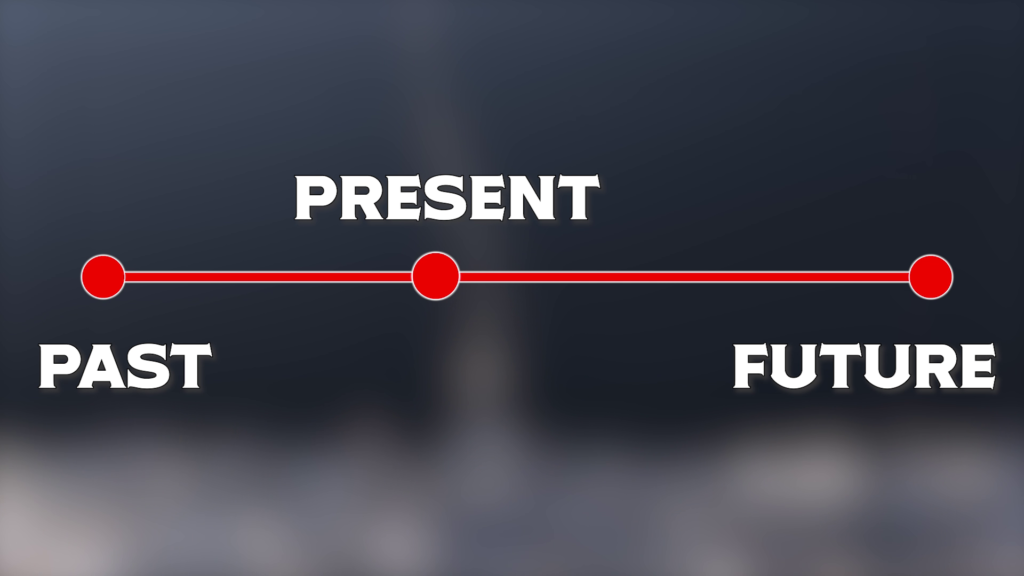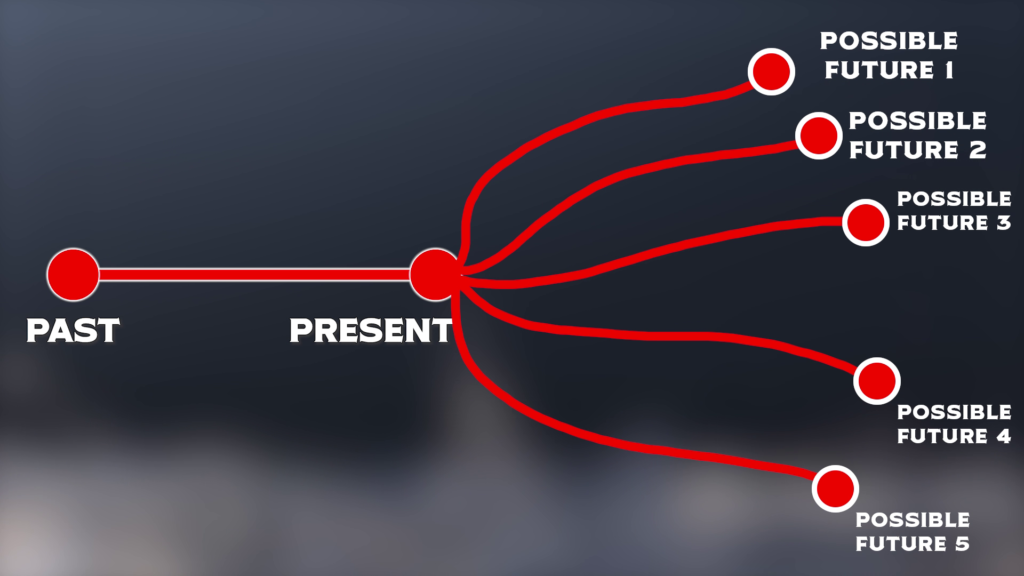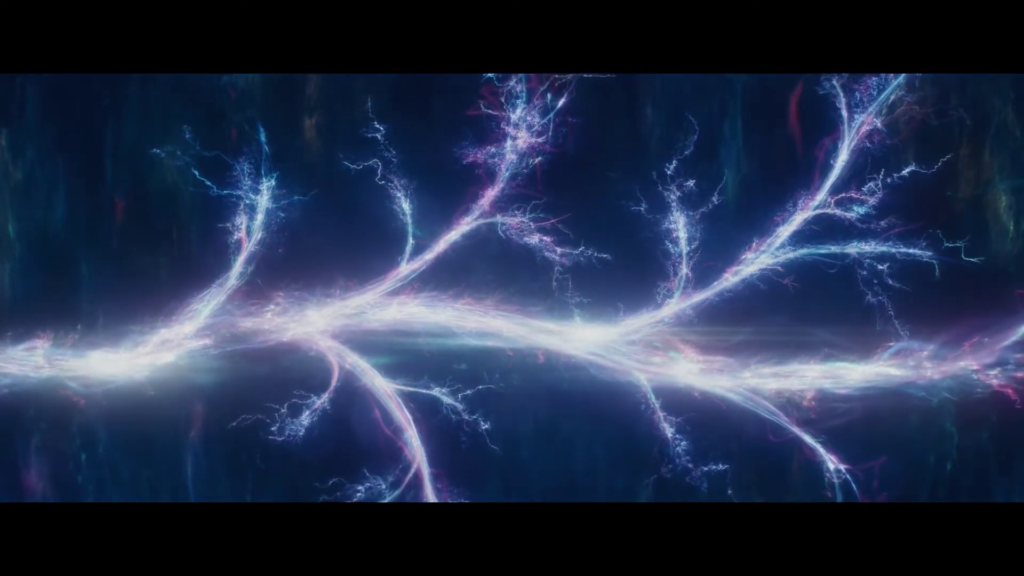The idea of time travel sparks curiosity: can we really travel through time? It’s like diving into a mind-bending puzzle where scientists explore if we can skip to the past or future. This question makes us rethink how time works, considering paradoxes and scientific rules. Imagine meeting your ancestors or seeing tomorrow—wild, right? Scientists use complex ideas, like Einstein’s theories, to figure this out. But it’s tricky; things like the Grandfather Paradox mess with the idea. So, the quest to figure out time travel keeps going, pushing us to understand time in a whole new way.

What is Time?
What exactly is time? We cannot perceive it, but it flows continuously into the infinite future. If we imagine a straight line, where the beginning is the past, somewhere in the middle is the present, and where the line ends is the future. Right?

Well, that’s the concept we understand. If we’re living in the present right now, then the future is just a probability. It’s not defined. Whatever actions we take today will shape the future accordingly. For instance, if today I become friends with a girl, she might become my girlfriend in the future, and over time, we might even get married and have children. Essentially, what we did in the past shapes our present, and the outcomes of our present actions will define our future.
So, if I don’t become friends with that girl, then the question of marriage in the future doesn’t arise. Therefore, the future is unpredictable; we can’t imagine time in a straight line.

What happened in the past has shaped our present. All incidents are defined for us now, but the future depends on the decisions we make. Now, if we connect the concept of time travel with our current understanding, it leads to numerous confusions. And this is where different Time Travel Paradoxes begin.
Grandfather Paradox
Suppose I feel like I should kill my grandfather, and that too when he was young. So, I get into a time machine and travel back to 1920. I go there and kill my grandfather. Now what? I’ve killed my own grandfather. Well, logically think about it. If I kill my grandfather, my father wouldn’t exist, so logically, I wouldn’t exist either. If I didn’t exist, who killed my grandfather then? Of course, if I didn’t exist, my grandfather wouldn’t be killed, and the timeline would continue as it is. I would go back to kill my grandfather again, and this loop would repeat endlessly. This is the famous Grandfather Paradox.
Solution
Resolution 1
There could be two possible states in which, after countless attempts, I might not succeed in killing my grandfather. Something or the other will happen eventually, leading to the failure of my idea to murder. This is also referred to as the timeline protection hypothesis. Basically, the rules of the universe won’t allow the timeline to be changed.
Resolution 2
Then, a Multiverse would be created, when I killed my grandfather, another timeline was created. The original timeline wouldn’t be affected. In the new timeline, my grandfather and all his descendants, including me, wouldn’t exist.

Ontological Paradox
Similarly, let’s take another example: I buy a book by Shakespeare in 2023 from a bookstore I then took my new and shiny time machine and travel back in time with the book when Shakespeare himself did even not write it. Now I give him that book, and he copies it exactly and gets it published. Over time, that book becomes available in the same bookshop where I purchased it in 2023.
This creates confusion about the book’s origin. This is also called the looping effect. Now, this book doesn’t have a clear origin. This is referred to as a Bootstrap Paradox or Ontological Paradox.
Butterfly effect
Right now, these two paradoxes are challenging the linear concept of time. If we consider these theories, with time travel, we’d have to perceive time as a loop. Changing anything in the past would affect the present, leading to the termination of the reason for time travel. This is also known as the butterfly effect and the ‘Let’s kill Hitler Paradox.’
What Physics Says…
Now, Einstein’s theory of relativity states that if any particle has mass, it can’t travel at the speed of light because it would require infinite energy. And without traveling at the speed of light, we cannot time travel. So, according to current physics, time travel is impossible. And these different time paradoxes also practically render time travel impossible.
Predestination Paradox
As I mentioned before, the future is variable; the outcome depends on the decisions made by you. So, if the Multiverse exists, different timelines have been created based on every decision you’ve made. And the future of each timeline will be different.
If the Multiverse isn’t possible and let’s assume that all incidents are predetermined, then trying to change the past won’t alter the present.
And if the future is fixed, in the present, you’ll make decisions that trigger that fixed future. Even if time travel is possible in this scenario, any change you make in the past will start a chain reaction, creating situations that maintain the present unchanged. This is known as the predestination paradox.
In the Concluding Lines…
In the end, the question of time travel is like a puzzle waiting to be solved. Right now, our science says it’s pretty tricky to hop around in time due to things like weird paradoxes and scientific rules. But scientists keep exploring new ideas, like quantum stuff, that might change the game. So, while it seems tough now, the mystery of time travel keeps us curious, pushing us to think beyond what we know and leaving the door open for future discoveries that might just crack this fascinating riddle.
